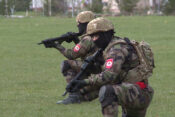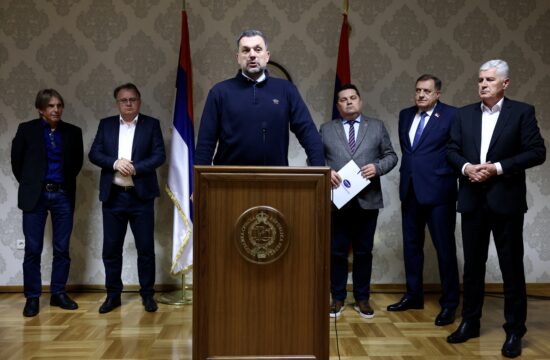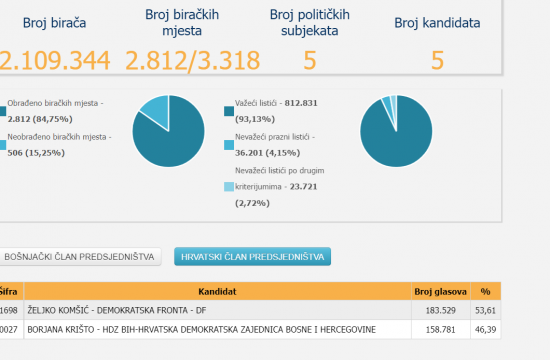
Bosnia’s international administrator urged on Wednesday Bosnian Serb authorities to refrain from forming an additional police unit, saying that “there is no convincing reason” to do so and arguing that it undermines stability and produces tensions.
“The current political discourse related to reserve police forces in the entities, which started with the unilateral step taken by the RS on this issue, does not contribute to peace and stability in Bosnia and Herzegovina,” the Office of the High Representative (OHR), Austrian diplomat Valentin Inzko, said in a statement.
The High Representative oversees the civilian implementation of the 1995 agreement that ended Bosnia’s war.
The National Assembly of Republika Srpska (RS), one of the two semi-autonomous entities within the country, recently adopted a draft of law changes which would introduce an auxiliary police unit in the entity.
When RS Interior Minister, Dragan Lukac, announced the initiative, he said that the new police unit should be composed of about 1,000 officers summoned only when necessary and would have the same competencies as active police officers. The officers would respond to safety challenges such as the migrant crisis, natural disasters or other situations where citizens need help, he said.
But Bosniak political leaders expressed fear that the new RS unit is part of a “militarization” that would serve the political purposes of the RS leadership. They also said that forming such a unit would be contrary to the 1995 Dayton Peace Agreement, as it would breach an article that says military capabilities of the two entities must be balanced.
A number of political parties in the other entity, the Federation (FBiH), said they would support an initiative to form such a unit in FBiH as well in order to maintain that balance.
This kind of tit-for-tat is not contributing to peace and stability, Inzko’s office said.
“On the contrary, it has generated a negative spiral of mistrust and competition, and even fear,” it said, describing “the current dynamic” as “worrying as it undermines stability by creating tensions and divisions in the country, that are ultimately of no benefit to the citizens.”
The OHR recommended that authorities on all of Bosnia’s government levels “work towards better cooperation in order to maximize public security and ensure a safe and secure environment,” rather than unilaterally establishing reserve police forces.
Furthermore, the Office estimated that “there is no convincing reason” to unilaterally establish such units, as “immigration, refugee and asylum policy are the constitutional responsibility of state institutions, and their capacity should be reinforced.”
“In this context, we urge the RS authorities not to proceed with further legislative procedure regarding the Law on Police and Internal Affairs, but to open dialogue with their counterparts at the state and Federation levels, as well as the International Community,” the statement concluded.







